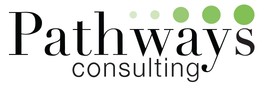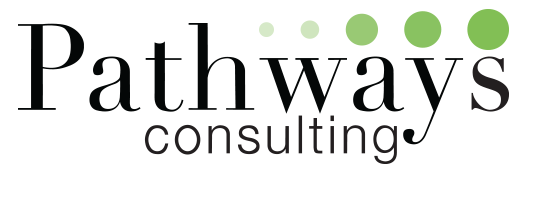|
I remember it like it was yesterday.
After the recession hit and some bad real estate investments sapped our emergency fund, my wife Holly and I had to start rebuilding our finances from scratch. That meant coming up with some cash, fast. I sold my beloved golf clubs at a garage sale. That hurt . . . a lot! I also took some part-time jobs: delivering phone books, driving semi-trucks during the summer, and doing interior painting until midnight before waking up and going to work the next day. It was a rough time for our family, but God sustained us and blessed our effort.We’re on the other side now, and we’re actually closer as a couple because of the experience. Praise Jesus. Maybe you’re there now. If you are, I promise it’s possible to claw your way out. Like Holly and I did, the first step to taking control of your money is quickly establishing a starter emergency fund of $1,000 (or $500 if you make less than $20,000 a year). I know. When you’re just beginning, the very first Baby Step can feel more like a giant leap. But it’s an important leap! That $1,000 will allow you to rely on cash when minor emergencies pop up rather than going further into debt by borrowing more money. The Bible encourages this sort of behavior. Proverbs 21:20 says, “In the house of the wise are stores of choice food and oil, but a foolish man devours all he has” (NIV). So take your wisdom from Proverbs. Establish your starter emergency fund now. Here are three great methods I used myself to do just that. 1. Get a Second JobA short-term, part-time job never killed anybody. Sure, you may be working 12-hour days seven days a week, but it’s only temporary. You’ll survive! Besides just bringing home more cash, the extra effort also generates a healthy sense of accomplishment that propels you toward your goals faster. 2. Have a Garage SaleI’m going to take a wild guess and say you have some junk lying around that you don’t need or use anymore. Get rid of it all by selling it at a garage sale or through online classifieds. Bonus: Eliminating all that clutter from your life will be freeing all on its own. (Unless they’re your beloved golf clubs. Man, getting rid of them still kills me.) 3. Cut ExpensesLittle changes can make a big difference. Consider canceling subscriptions, adjusting your thermostat, and eliminating activities that require lots of gas money. Maybe you can even sacrifice some luxuries like your weekly car washes or lawn service. You might be able to do some of these yourself or hire a neighborhood kid to do the work for less than you were paying the pro. A $1,000 starter emergency fund isn’t out of reach for anyone. It may take some hard work to fund it quickly, but you’ll be amazed how much better you sleep at night when you know that you’re prepared for those curveballs life is bound to throw your way. Chris Brown is a nationally syndicated radio talk show host, pastor, and dynamic speaker carrying the message of stewardship and intentional living nationwide. Available on radio stations across the country, Chris Brown’s True Stewardshipprovides biblical solutions and sound advice for questions on life and money. You can follow Chris online at www.stewardship.com, on Twitter at @ChrisBrownOnAir, or at www.facebook.com/ChrisBrownOnAir.
0 Comments
The RFP to Award training is coming up July 30th. Get your seat today. This full day seminar is designed to help you better understand the RFP Process. Some of the topics covered will include, what is RFP? Understanding terminology and the basic process, to Bid or Not to Bid? How to make biding decisions, and best ways to approach the process. Get full description here. http://ow.ly/Q8sy6
Millions of people enjoy hobbies. They can also be a source of income. Some of these types of hobbies include stamp or coin collecting, craft making and horse breeding. You must report any income you get from a hobby on your tax return. How you report the income is different than how you report income from a business. There are special rules and limits for deductions you can claim for a hobby. Here are five basic tax tips you should know if you get income from your hobby by the IRS
Do you have a budget? Having trouble figuring our how to do it? Here is a free tool from Dave Ramsey to help with that. http://ow.ly/Q2PSH If you need assistance let Jason Moore, our ELP help you with this. Contact us at (843) 261-9293 or visit his personal page to find out more. http://ow.ly/Q2PNn
The Center for Women will launch the next series of their 'Ready for Work' program next Tues, July 28, specific for female Veterans & open to those in the Lowcountry. Find out more here: http://ow.ly/PWOmb
1. Use Wi-FiUse a Wi-Fi connection whenever you can, especially at home or work. Data overages can pile up quickly, so you want to make sure you stay within your monthly limit by only using 4G/LTE when you need it.
2. Cut the Insurance Insurance for your cell phone? No way. If you truly need “insurance” for your cell phone, then you’ve bought a cell phone that you can’t afford. In other words, if you don’t have the cash available to replace your phone if something happens to it, then your phone is too expensive for your budget. 3. NegotiateWhen you’re in the market for a new phone, don’t just assume you can’t talk down the price. Go to the store and talk with a salesperson to see if you can get the activation fee or upgrade fee waived. If you’ve been a customer for a long time, then be sure to bring that up. Use whatever leverage you have, including fees—or the lack of fees—from competitors. 4. Buy Out-of-Contract PhonesCell phone companies know how to make money, lots and lots of money. One way they do that is through contracts. To buy their phone, you’ll have to sign a two-year contract to use that company’s services. If you attempt to switch carriers, you’ll get hit with a ridiculous cancelation charge. So what do you do? Buy out-of-contract, gently used phones. Ask around. Look online. No, you won’t be able to get the hottest, newest smartphone this way, but you can get a really good smartphone without locking yourself into one company for years to come. 5. Cut Out the Stuff You Don’t UseThis might seem like common sense, but you’d be surprised how many people don’t even look at their cell phone bill. They continue paying for things they never use, like emergency roadside assistance, 411, and “enhanced voicemail.” Sit down, look long and hard at your phone bill, and determine if you really need everything that’s listed on it. Tips by http://www.daveramsey.com/ get full article here - http://ow.ly/PTtD5 We are excited to announce that our own Jason Moore has been selected as a Dave Ramsey Endorsed Local Provider (ELP) for Tax & Accounting Services! Dave's ELP program has created a network of endorsed professionals who are held accountable by members of Dave's team and customer reviews. Way to go Jason!!
The Charleston Harbor Post-45 Deepening Project is one step closer to construction after a U.S. Army Corps of Engineers board approved plans Thursday to deepen the harbor to 52 feet. The report will now be reviewed by state and local agencies over the next 30 days.
The Kaiser Family Foundation estimates that 154,221 South Carolinians received tax credit subsidies to pay for their health insurance under the Affordable Care Act. The U.S. Supreme Court ruling is a victory for businesses because workers who have health insurance usually are healthier and more productive, says the S.C. Small Business Chamber of Commerce.
|
AuthorThe Pathways Team Archives
September 2020
Categories
All
|
|
(843) 261-9293
105 South Cedar St. Suite E Summerville, SC 29483 9:00am- 5:00pm, Monday- Friday |

 RSS Feed
RSS Feed
